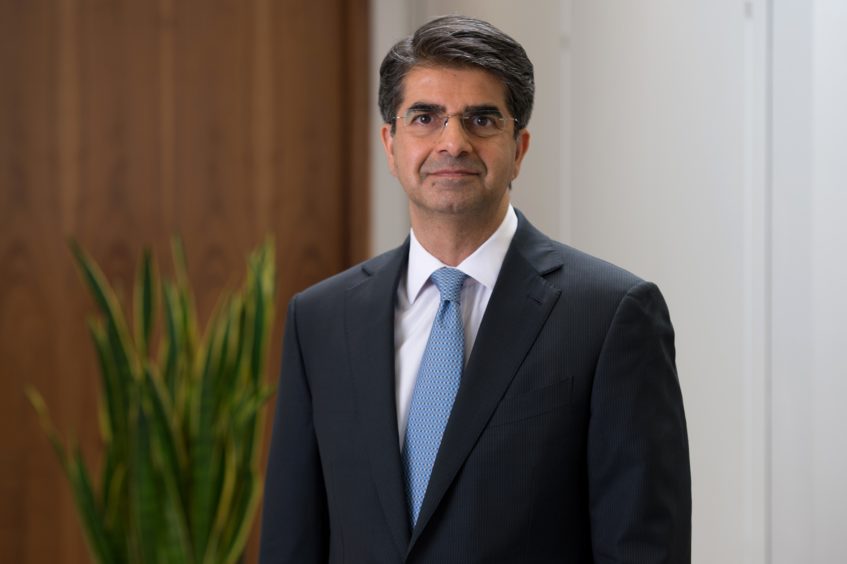
Tullow Oil is moving away from its focus on asset sales and has set out a long-term vision, under which it will generate $7 billion over the next 10 years.
The new plan sees a focus on the company’s West African operations. Tullow will spend 90% of its capital expenditure on this region.
Tullow will be a “much more focused business”, CEO Rahul Dhir said on a conference call. The West African production has been somewhat overlooked by a desire to be “all things to all men”, he said. Work will be self funded and the company does not need to acquire additional assets.
Debt control
In a case where oil prices are $45 per barrel in 2021 and $55 per barrel from 2022 onwards, the company’s West African assets will generate $7bn of operating cashflow. Minus capex of around $2.7bn, and Tullow has around $4bn to pay down debt and return cash to shareholders.
Net debt has been reduced to around $2.4bn. The company aims to cut this to $1-1.5bn. Capex will be flexible, with a range of $150mn to $450mn.
Production this year has averaged 75,000 barrels per day, with the full year remaining at 73,000-77,000 bpd. Output will decline in 2021, owing to a lack of drilling this year, but savings made will more than offset this shift.
Tullow’s holding in Ghana will be the linchpin of its new strategy. It has produced 400 million barrels of oil from Jubilee and TEN, of 2.9bn barrels in place – a recovery factor of 14%. There is infrastructure in place and the company said it expects to generate material cash flow from the assets over the next decade, partly through a “rigorous focus” on costs.
This Ghana focus will launch in the second quarter of 2021, with plans for a multi-well drilling programme.
Every barrel
Tullow’s Ghana managing director Wissam Al-Monthiry highlighted the importance of cost controls and short cycle potential. “Every barrel matters, but every dollar matters has to become engrained as well.”
In order to tackle cost problems, Al-Monthiry said the company aimed to get ahead of its maintenance problems and tackle long-standing equipment defects on both the Jubilee and TEN projects. “We’re proactively addressing emerging issues well before they impact us,” he said.
The cost of drilling new wells should come down by around 20%, from $75mn to around $60mn. Well design will be simpler and more streamlined and there will be a new focus on integrated planning.
One of the potential areas for additional barrels will come from over the border with Cote d’Ivoire. The company acquired CI-524 in 2018 and 3D seismic on this licence has shown some “very attractive potential”, Al-Monthiry said. Discoveries in this block could be tied into the TEN floating production, storage and offloading (FPSO).
Short cycle
“Following hard work by our team, and with input from our partners and external experts, we have a clear strategy and plan for the next 10 years,” said Dhir.
“The plan focuses our capital on a deep portfolio of short-cycle, high-return opportunities within our current producing asset base and will ensure that Tullow can meet its financial obligations and deliver material value for our host nations and investors.”
There is also potential for Tullow in its non-operated West African projects. The company receives production of around 5,000 bpd from Equatorial Guinea, 15,000 bpd from Gabon and 2,000 bpd from Cote d’Ivoire.
One example of a short-cycle project is Simba, in Gabon. Operated by Perenco, there were “just a few months” between discovery and tie back to an existing platform, Dhir said.
Tullow has cut the size of its team working on non-operated assets, from 46 people in 2019 to just 15 people now.
“These assets deliver very high returns and rapid paybacks,” Dhir said, citing various drilling plans in the three states.
Unlocking value
In March, Tullow said it aimed to sell off $1bn of assets. It completed its $575mn of Ugandan assets to Total this month. The company may hold further sales but only if these are value accretive. The company feels less driven to go ahead with sales because of cost savings and its cash generation plans.
Outside West Africa, Tullow has said it has opportunities to unlock value in Kenya and South America. Work in Kenya is under way to make the project work at low oil prices, while still preserving its phased development plan. The partners are working on an extension to the exploration licences in Kenya to the end of 2021.
The company also has exploration acreage in Suriname, Guyana and Argentina. Tullow will drill the Goliathberg-Voltzberg North-1 well for the first quarter of 2021 in Suriname.
Updated at 10:13 am with Al-Monthiry comments.
Updated at 10:20 with Dhir comments on non-operated assets.
